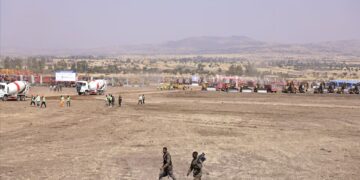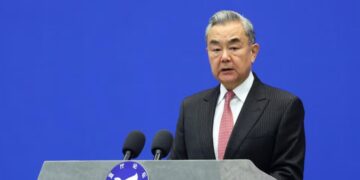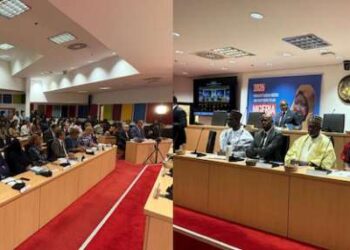By Ebi Kesiena
The United Nations World Food Programme (WFP) has commenced emergency food airdrops to thousands of people trapped in the war-ravaged Upper Nile State of South Sudan, where ongoing violence and inaccessibility have deepened a severe hunger crisis.
In a statement released on Tuesday, the WFP said the intervention marks the first successful access in over four months to Nasir and Ulang counties, remote areas that are reachable only by air due to deteriorated infrastructure and persistent conflict.
The agency confirmed that more than 40,000 people in these counties are currently facing catastrophic levels of hunger and require urgent food and nutrition support.
WFP’s Country Director in South Sudan, Mary-Ellen McGroarty, described the situation as dire and warned of looming famine without immediate action.
“The link between conflict and hunger is tragically clear in South Sudan, and we’ve seen this over the past few months in Upper Nile. Without a major scale-up in assistance, the counties of Nasir and Ulang risk slipping into full-blown famine,” McGroarty said.
WFP aims to reach at least 470,000 people in Upper Nile and northern Jonglei States during this period. However, access challenges, continued fighting, and a deepening funding crisis are threatening the scope and effectiveness of the agency’s response.
According to the WFP, over one million people across Upper Nile are currently experiencing acute food insecurity, including at least 32,000 people who have reached IPC Phase 5 catastrophic hunger, the highest classification of food insecurity and a precursor to famine.
Nationwide, the outlook remains bleak. An estimated 7.7 million people, or 57 percent of South Sudan’s population, are struggling with crisis, emergency, or catastrophic levels of hunger. The crisis is exacerbated by a sharp decline in international funding, which has forced the WFP to make difficult decisions in its operations.
With limited resources, the agency is now prioritising the most vulnerable populations and delivering reduced rations to just 2.5 million people—representing only about 30 percent of those in urgent need.
“The scale of suffering is enormous, and yet the funding to meet this suffering is shrinking,” the WFP said in its statement. “We are faced with impossible choices and are appealing to the global community for urgent support to avert a full-scale humanitarian catastrophe.”
The WFP stressed the need for increased humanitarian access, security guarantees from warring factions, and an immediate scale-up in funding to meet growing needs and prevent famine-like conditions from taking root in more communities.
The WFP said it would continue leveraging air operations and other innovative delivery methods to reach isolated communities. However, it warned that without a coordinated global response, the gains made in previous years could be lost, and thousands more could be pushed to the brink of starvation.



































